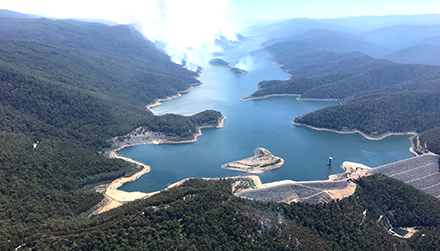The media watchdog has found that the ABC breached accuracy rules in stories about Victoria’s native forest industry. Source: Timberbiz
The Australian Communications and Media Authority (ACMA) determined that the Australian Broadcasting Corporation (ABC) breached broadcasting rules by misrepresenting risks associated with the findings of the Office of the Conservation Regulator (OCR) in Victoria during three radio broadcasts in April 2021.
Statements in each of the broadcasts conveyed that the OCR had found logging breaches by VicForests had put Melbourne’s drinking water at risk.
The ACMA found that these statements by the ABC did not accurately reflect the OCR’s published statements.
The breaches occurred during broadcasts of ABC NewsRadio Breakfast, ABC Radio Melbourne Mornings and a news update on ABC Radio National.
An ACMA investigation found no evidence that the OCR had found such risks associated with the logging breaches. As a result, the ABC broadcasts breached accuracy requirements and misrepresented the perspective of the OCR in attributing these findings to the regulatory body.
ACMA chair, Nerida O’Loughlin, said the facts presented in the ABC’s reports did not meet the standards set out in its own code of practice.
“When we assessed the factual material presented in the ABC news reports, we found they did not meet the standards expected of it as a public broadcaster,” Ms O’Loughlin said.
“The assertion that the OCR had found a significant risk to Melbourne’s drinking supply exaggerated the impact and seriousness of the breaches found by the OCR. This could have raised considerable concerns for the ABC’s audiences about such a critical issue as water quality.”
The ABC attributed a perspective to the OCR that was not present in their published findings and in this regard had let down its audience.
“As a result of the ACMA’s finding, the ABC will issue a clarification on its website, circulate the ACMA investigation amongst relevant staff and include the findings in future staff training,” Ms O’Loughlin said.
VicForests in a statement welcomed ACMA’s report that the ABC breached broadcasting rules in coverage of VicForests’ harvesting on steep slopes in April 2021.
“We continue to be disappointed by repeated claims of systemic unlawful timber harvesting on steep slopes,” said the government operator, which is responsible for the harvesting and sale of native timber and for the regeneration of harvested native forest areas.
VicForests said it had published on its website the data that was provided to parties that resulted in misleading and false claims.
“As we have stated, the regulations provide that up to 10% of a planned harvest can exceed 30 degrees as long as any potential environmental impacts, such as soil movement and erosion are carefully managed. This has been a long-standing rule and was clarified in last year’s Code (of Forestry Practice) amendments,” VicForests said.
“Any analysis that only includes post-harvest measurement is not an accurate assessment of slope compliance against the regulations.”
VicForests said its analysis based on the latest elevation data from LiDAR and Victoria’s publicly available dataset … shows that of the 365 coupes in the Thomson and Upper Goulburn catchments, two coupes (0.5% of all coupes) may not align with regulatory requirements.
“Further, pre-harvest surveys in nine showed that the planned harvest areas were below 30 degrees and therefore compliant with regulatory requirements. Two were road improvement operations and based on an existing road footprint. Further our analysis showed that one coupe access track was prepared and subsequently was not harvested, and one coupe was pre-VicForests.”
VicForests said it took its responsibility of sustainably harvesting coupes within state forests for today and future generations extremely seriously. “We reject allegations that we have engaged in widespread and systemic breaches of slope prescriptions,” VicForests said.
Victorian Forest Products Association CEO Deb Kerr said the media needed to be fair and impartial in their reporting, rather than telling a story that suits their narrative.
“Today is proof that these standards need to be upheld to the highest standards, particularly when an issue is highly emotive and contentious,” she said.
“Victoria’s native forestry is an industry that is one of the most scrutinised, audited – and globally certified. Not everyone might like it, but that doesn’t give anyone the right to twist the facts until they become fiction.”






